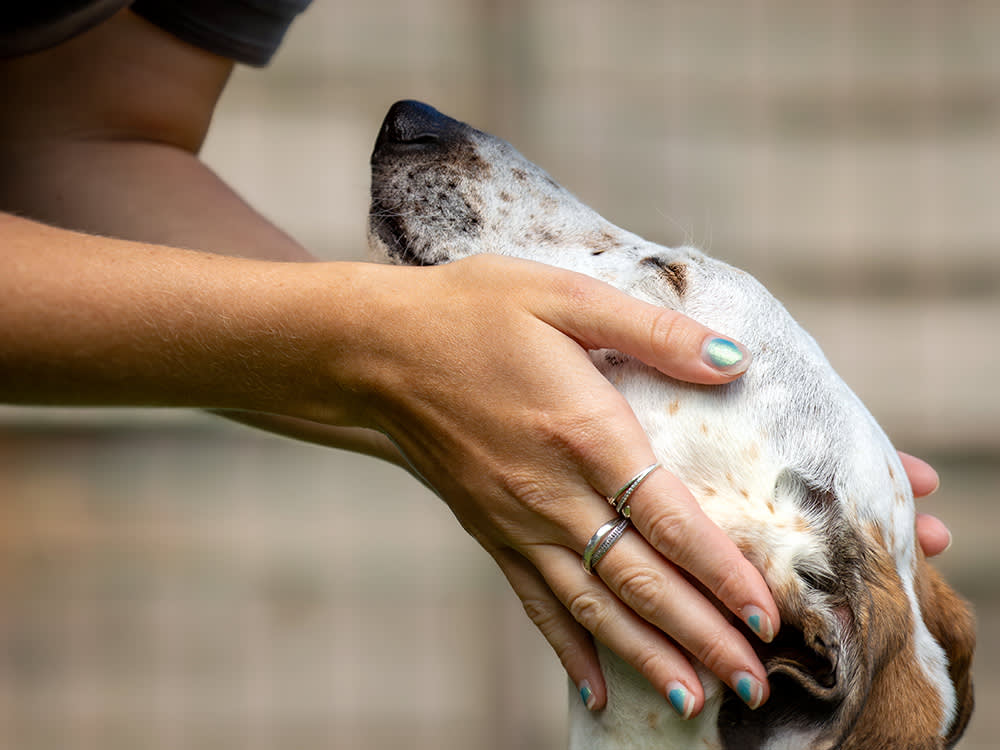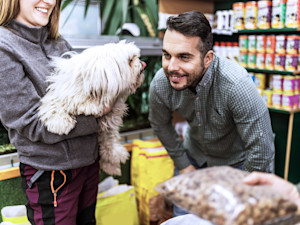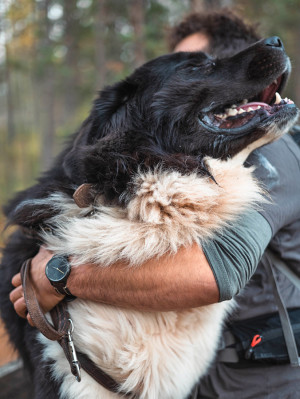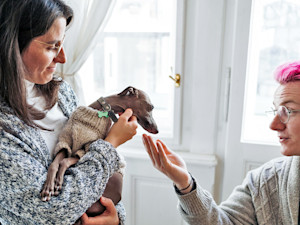Rehoming Centres ‘At Breaking Point’ as Animals Arrive Faster Than They Leave, Says RSPCA
Animal rescue centres are full as costs to provide emergency shelter mount to approximately £500,000 a month
The RSPCA, the UK’s oldest animal welfare charity, is facing an unprecedented crisis as its rescue centres reach full capacity. With the number of animals coming into its care outpacing those being adopted, the charity is now spending approximately £500,000 a month on private boarding to home animals in need.
The Royal Society for the Prevention of Cruelty to Animals (RSPCA)opens in new tab, which celebrates its 200th anniversary this year, is facing what the charity describes as an “animal welfare crisis”. The combination of a rising number of animals being taken in and a slowdown in adoption rates due to the cost-of-living crisis has left the organisation “at breaking point”.
Get (totally free) deals for food, treats, accessories, tech and way more pet parenting must-haves.
With its rescue centres full, the animal welfare charity is increasingly having to rely on private boarding to look after animals in need. From January to April 2024, the RSPCA spent £2.1 million on private boarding, with nearly £1.2 million allocated to kennelling hundreds of dogs due to the lack of space in its centres. This financial burden continues to grow, with the charity currently caring for 1,441 animals in private boarding facilities.
“As we celebrate our 200th birthday this year, it’s incredible to see how far animal welfare has come since our founding in 1824,” says Karen Colman, head of animal logistics and welfare. “But the sad reality is that there’s still so much to do, and we’re currently facing an animal welfare crisis.”
“Our rescue and rehoming centres are at breaking point with the number of animals coming in versus the number being rehomed,” she adds. That number of animals includes 503 dogs – costing the charity more than £50,000 each week – 285 horses, 201 cats, 126 rabbits, 126 farm animals and 58 exotic animals.
The ongoing cost-of-living crisis is not only affecting individuals and families but also animal rescue organisations, as costs continue to rise and the number of animals surrendered to rehoming centres increases.
“Amid the cost of living crisis, many of the [private boarding kennels] have also had to increase their prices, making it a growing expense for us. The bills we’re facing are mounting every month,” says Colman.
The RSPCA has observed a worrying trend of reduced rehoming rates as families cut back on expenses. A recent survey conducted by the charity revealed that 72 percent of people were not planning to get a new pet due to financial constraints. This has resulted in animals staying longer in RSPCA centres and reducing the availability of spaces for new arrivals, and increasing the reliance on costly private boarding solutions.
“Sadly, we’re seeing more animals coming into our care and more pet owners turning to us for help because of the increasing costs of owning a pet, including the cost of food and vet bills,” says Dr Samantha Gaines, head of the RSPCA companion animals team. “The cost of living has also led to a reduction in the number of people who are willing to take on an animal as they try to save money.”
So, how can I help?
In response to the crisis, the RSPCA is launching an urgent appeal to families who can commit to the cost and responsibility of a pet to consider adopting a rescue animal. “We have hundreds of animals in our care with so much love to give; they just need a chance,” urges Colman.
The charity also emphasised its policy of not euthanising healthy, rehomeable animalsopens in new tab and goes to great lengths to find loving homes for the animals in its care, whether it takes weeks or months. For those able to open their homes to a new pet, the RSPCA’s Find A Pet serviceopens in new tab lists all the animals ready for adoption.
What if I’m struggling to afford my pet?
To help pet owners struggling with costs, the RSPCA has also launched a Cost of Living Hubopens in new tab to provide advice to pet owners struggling with the cost of care. Additionally, a dedicated telephone helpline is available for those seeking support on 0300 123 0650. The charity also appeals for donationsopens in new tab to support their vital work in rescuing, rehabilitating and rehoming animals.








